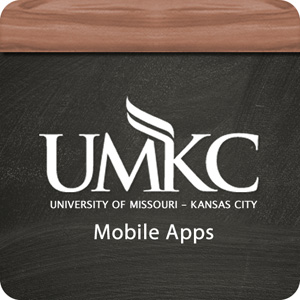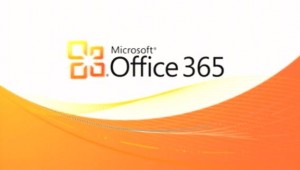 Currently enrolled UMKC students can download, install, and use Microsoft Office 365 ProPlus applications on desktop and laptop computers, free of charge, as part of the Microsoft Student Advantage program. These applications are the same versions as boxed software available for purchase in stores and include Word, Excel, PowerPoint, Access, Publisher, and Outlook (Macintosh users can download Word, Excel, PowerPoint, and Outlook). The software is available for download within your UMKC O365 student email account and can be installed on up to five devices. More information on this benefit, including instructions and FAQs, can be found on the UMKC Information Services website.
Currently enrolled UMKC students can download, install, and use Microsoft Office 365 ProPlus applications on desktop and laptop computers, free of charge, as part of the Microsoft Student Advantage program. These applications are the same versions as boxed software available for purchase in stores and include Word, Excel, PowerPoint, Access, Publisher, and Outlook (Macintosh users can download Word, Excel, PowerPoint, and Outlook). The software is available for download within your UMKC O365 student email account and can be installed on up to five devices. More information on this benefit, including instructions and FAQs, can be found on the UMKC Information Services website.
BlackBoard recently made a change that allows students, faculty, and staff to utilize the BlackBoard Mobile Learn app for free. This app allows students to see a phone optimized view of the material in Blackboard for each class. More information can be found in the iTunes store.
 The Federal Bureau of Investigation and other authorities are warning universities of computer-based scams that target students, faculty and staff.
The Federal Bureau of Investigation and other authorities are warning universities of computer-based scams that target students, faculty and staff.
While cybercrime has long been a problem and many users take reasonable precautions, some of the latest scams are highly deceptive and sophisticated, and all campus users are urged to make themselves familiar with these techniques.
If you believe your financial accounts have been compromised, contact your financial institution and close your accounts. Change passwords, and don’t use similar passwords. Report the attack to the FBI’s Internet Crime Complaint Center at ic3.gov.
For years, universities have been targeted by phishing campaigns designed to steal credentials. These have often included sending spam from compromised email accounts and sending emails that mimic official correspondence but ask the recipient to verify their account information.
College students across the U.S. have been targeted to participate in work-from-home scams. Students have been receiving emails to their school accounts recruiting them for positions with fictitious companies or persons.
How the scam works: The student is asked to provide his/her bank account credentials under the guise of setting up direct deposit for his/her pay. The student will be directed to withdraw funds from the account and send a portion of the deposit, via wire transfer, to other individuals involved in the scam. In some cases, the scammers will add the student’s bank account to a victim employee’s direct deposit information to redirect the victim’s payroll deposit to the student’s account. In other cases, the student will be asked to deposit a check in advance.
Consequences:
- The student’s bank account will be identified by law enforcement as being involved in the fraud.
- Without the student’s participation, the scam could not be perpetrated so he/she facilitated the theft.
- The student could be arrested and prosecuted in federal court. A criminal record will stay with the student for the rest of his/her life and will have to be divulged on future job applications, which could prevent the student from being hired.
- The student’s bank account might be closed due to fraudulent activity and a report could be filed by the bank.
- This could adversely affect the student’s credit record.
How to protect yourself and others:
- If a job offer sounds too good to be true, it probably is.
- Never accept a job that requires the depositing of funds into your account and wiring them to different accounts.
- Look for poor use of the English language in emails such as incorrect grammar, capitalization and tenses. Many of the scammers who send these messages are not native English speakers.
- Never provide credentials of any kind such as bank account information, login names, passwords or any other identifying information in response to a recruitment email.
- Forward any suspicious emails to the university’s IT personnel by going to: Outlook, click on the three dots at the bottom left and select folders. On the left side click on Public Folders. Click on All Public Folders. Click on Kansas City. Move e-mail to Spam Reports folder.
- Tell your friends to be on the lookout for the scam.
 Did you know you can get educational discounts and pricing on the latest technology at the UMKC Bookstores? Visit today for more information!
Did you know you can get educational discounts and pricing on the latest technology at the UMKC Bookstores? Visit today for more information!
Graduating students–act now to get your discount before you graduate in December.
 Microsoft Office ProPlus – Now available for students at no cost!
Microsoft Office ProPlus – Now available for students at no cost!
UMKC enrolled students are now eligible for a free copy of MS Office ProPlus. MS Office ProPlus is a subscription service for Microsoft Office that includes all of the Office applications: Word, Power Point Excel, Publisher, etc. Its advantage over a traditional desktop version of Office is that it can be installed on up to five devices.
The software will be available for download in your Office 365 student email account beginning May 20th. Simply login to O365 and click on the Gear icon to download. Learn more by visiting www.umkc.edu/is/webmail/live/o365proplusfaq.asp.
 Currently enrolled UMKC students can download, install, and use Microsoft Office 365 ProPlus applications on desktop and laptop computers, free of charge, as part of the Microsoft Student Advantage program. These applications are the same versions as boxed software available for purchase in stores and include Word, Excel, PowerPoint, Access, Publisher, and Outlook (Macintosh users can download Word, Excel, PowerPoint, and Outlook). The software is available for download within your UMKC O365 student email account and can be installed on up to five devices. More information on this benefit, including instructions and FAQs, can be found on the UMKC Information Services website.
Currently enrolled UMKC students can download, install, and use Microsoft Office 365 ProPlus applications on desktop and laptop computers, free of charge, as part of the Microsoft Student Advantage program. These applications are the same versions as boxed software available for purchase in stores and include Word, Excel, PowerPoint, Access, Publisher, and Outlook (Macintosh users can download Word, Excel, PowerPoint, and Outlook). The software is available for download within your UMKC O365 student email account and can be installed on up to five devices. More information on this benefit, including instructions and FAQs, can be found on the UMKC Information Services website.

